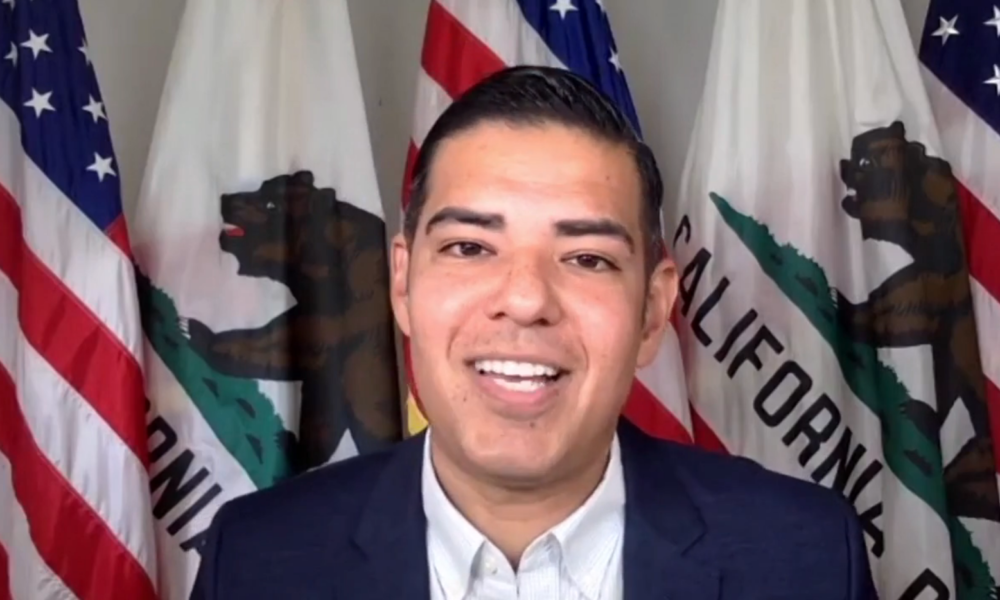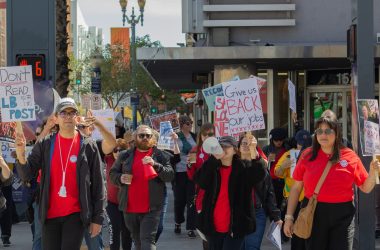Mayor Robert Garcia has proposed a $207 million recovery plan to help rebuild Long Beach’s economy and secure a safe future after the city has suffered immense financial losses due to the ongoing coronavirus pandemic.
The city is expected to receive federal and local government funding, with at least $141 million coming from President Joseph R. Biden Jr.’s American Rescue Plan.
Of the $207 million, $51 million will be put into helping small businesses, and $13 million will go toward coronavirus testing and contact tracing for businesses and their employees.
“The number one [problem] we heard from the business community was [that] they need a way to ensure that workers are tested, safe and that people feel safe going to small businesses,” Garcia said.
Long Beach aims to give $5 million to restaurants and bars, $5 million to personal services and fitness centers and $4 million to nonprofits and arts organizations. Per the plan, the city will also be spending $3.5 million to improve business districts and help bring in tourism.
The plan proposes that the city invests $7.5 million into economic inclusion, building off the existing framework while expanding to include digital inclusion. Garcia said this means building computer centers and providing people with access to a broadband connection.
In addition, $5 million is expected to be set aside to help clean up the city as the plan calls for a significant investment in corridor cleanups, as well as trash and graffiti collection.
Garcia said that $72 million is slated to go toward building a healthy and safe community, with $13 million allocated for testing and contact tracing for all Long Beach residents. He also proposed another $6 million to promote health equity, outreach programs and mental health programs.
“We want to ensure, as we grow back and recover, that our health equity measures are in place all across the city,” Garcia said. “We want to be addressing equity here in Long Beach, and we are reaching communities surrounding our city.”
Over $7 million is anticipated to address food insecurity and basic needs, and another $2 million to benefit early childhood education and childcare. Of the federal relief, $29 million is slated to provide tenant assistance for those who have incurred great debts during the pandemic.
“[Food security] is significant and has been incredibly important to me and members of the city council,” Garcia said. “In fact, most of these issues we hope to address have been brought forward by various council members and by different committees of the city council.”
To assist those experiencing homelessness, the plans looks to set aside $12 million to create a new modular temporary shelter, mobile restrooms and working showers. The budget hopes to provide assistance for those experiencing housing insecurity and create low-cost housing options, a workforce and social enterprise programs.
“We have to ensure that people experiencing homelessness have access to shelter, to food and to services,” Garcia said. “We are already doing a lot in this area that we can do even more in. This recovery act helps to address those issues.”
According to Garcia, the city spent $48 million of the city’s reserves to address to coronavirus pandemic last year. This new plan would hopefully replenish the city’s reserves for any future crisis, Garcia said.
“This might be the most important part of this total plan,” Garcia said. “Thank God we had a robust reserve program in place to address the crisis in front of us. I commend [the] city council for ensuring we were prepared. I can’t express how important it is to have full reserves to meet the next emergency.”
Another $30 million is anticipated to go toward structurally eliminating the city’s budget deficit for the next cycle. Without the allocation, the city is anticipating a $30 million deficit beginning in the fall and continue into 2022. The deficit, according to Garcia, was largely due in part to the pandemic and its impact on tourism and sales tax.
“What we don’t want to do is spend the next year debating how many services we are gonna cut,” Garcia said. “Like librarians, like street sweeping, like trash pickup, all while we are trying to recover.”
The remaining money from the $83.2 million, if approved, will go to help ending city-wide furloughs as many public services have been reduced in some capacity since the start of the pandemic. With the help of the allocation, the city aims to end furloughs in April.
The city council will be examining the proposed plan and will meet on March 16 to discuss it.




